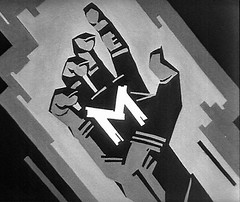I just watched Saw II, and it’s time for some comments starting from the two Saw movies.
I find humans fascinating… I always did.
The key phrase for me is on the tape for Zepp (introduced in Saw): “Hello, Mr. Hindle. Or as they called you around the hospital: Zepp. I want you to make a choice. There's a slow-acting poison coursing through your system, which only I have the antidote for. Will you murder a mother and her child to save yourself? Listen carefully, if you will. There are rules.” Of course, he just chooses to sacrifice those lives for his. And this is why I find people fascinating. Most people are, indeed, ungrateful to be alive. They feel comfortable with living, but they choose a standard level of personal comfort, one that doesn’t imply too many sacrifices or too many risks. Sometimes I have the impression that this happens because they’re scared of the consequences of something done “not according to the book”. But this only means that they are afraid to assume their lives, and in this case, I really don’t understand what’s their point in living after all. This fits the profile of all average people. Why don’t they want more? Why don’t they want to encounter their limits in order to push them afterwards, I don’t know. When John says “Yes, I'm sick, officer. Sick from the disease eating away at me inside. Sick of people who don't appreciate their blessings. Sick of those who scoff at the suffering of others. I'm sick of it all!”, I totally agree with him. However, when the life of these people is in danger, when their comfort, stability and compromises are on the verge of braking, they’re capable of about anything to stay alive. They perceive the tragedy of their imminent death, but they refuse to admit the drama of their petty lives. Interesting. Why don’t they want more, when they can have it? Why don’t they take advantage of the few challenges in their lives, in order to start assuming living? These are questions I’m sure they don’t think about, while too busy with their jobs, families and duties. Every piece has its puzzle.
John is supposed to be the maniac in the movies because he determines his victims to actually kill themselves. In Saw II however, he only asks detective Matthews to listen to him. But people have lost the patience to listen to each other. The ones held captives in Saw II fail to communicate, even though they should have understood that communication is the key to their survival. Discovering things about themselves and the rest should have been the task, but instead they choose to run after the antidote, guide themselves according to personal interests and fugitive clues. People have become too self-sufficient, confident and arrogant to take a minute and look around. And listen. And learn. About life; not just about jobs, and business and so on. They lack the ability to improve themselves by experiencing. They lack the determination to overcome prejudices and tradition and the regulations dictated by the latter. To go against the flow. And so on.“Hello, Michael. I want to play a game. So far, in what mostly could be called your life, you have made a living watching others. Society would call you an informant. A rat. A snitch. I call you unworthy of the body you possess. Of the life you've been given. Now we will see if you are willing to look inward, rather than outward, to give up the one thing you rely on in order to go on living. The device around your neck is a death mask. The mask is on a string timer. If you do not locate the key in time, the mask will close. Think of it like a Venus Flytrap. What you're looking at right now is your own body, not more than two hours ago. Don't worry, you're sound asleep, and can't feel a thing. Taking into account that you are at a great disadvantage here, I am going to give you a hint as to where I have hidden the key. So listen carefully. The hint is this: It's right in front of your eye. How much blood would you shed to stay alive, Michael? Live or die... Make your choice.”
Subscribe to:
Post Comments (Atom)


No comments:
Post a Comment